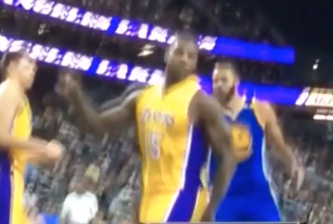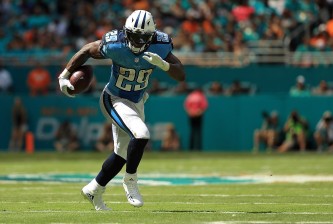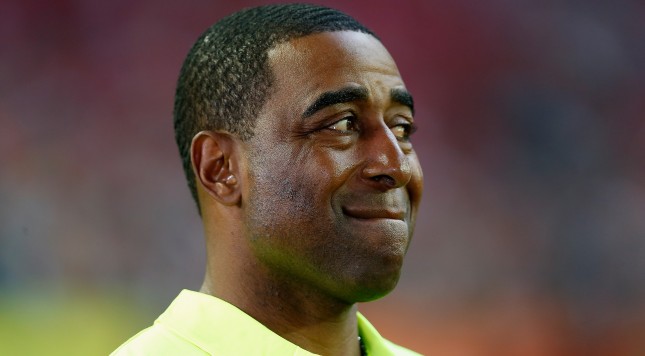There is good advice, bad advice and then there is something in between. Most will lump ESPN’s Cris Carter’s now infamous “fall guy” comments clearly into the bad advice category. For the average person, it’s horrible advice.
For the NFL player, it falls somewhere in between. It’s definitely not as overtly detestable as it might seem at face value.
To understand this, context is vitally important. Carter’s initial advice was to stay out of trouble. He may not have used the right words to convey his message, but it was clear that his intention was not for players to commit crimes and blame it on someone else, which he made clear in his public apology.
“There’s no hiding crimes anymore,” Carter said at the symposium, via Robert Klemko of The MMQB. “Everybody is TMZ.”
With Warren Sapp adding that even members of a player’s crew can blow the whistle on a player’s transgressions. Now we know that Sapp wasn’t qualified to give advice to young NFL players, but it’s Carter’s comments that have come under fire.
As Klemko explained his reason for not reporting Carter’s comments at the time, while adding that it was “a light-hearted and animated session that at times made league employees in attendance cringe.” If the rookie symposium is going to be effective, speakers must be free to express what they have learned about being in the league, whether it aligns with the official message of the NFL shouldn’t matter.
That’s probably why the NFL negotiated the right to limit elements of Klemko’s report. Not every speaker is going to use words and language that the public will interpret favorably.
More basically, Carter wasn’t condoning poor behavior anymore than a parent condones their high schoolers having sex. That doesn’t mean he wasn’t going to suggest a way that NFL players could protect themselves, their families and their assets from the fallout of an arrest for marijuana possession, for example.
Having a friend claim the bag marijuana, which we know runs rampant in the NFL, isn’t that nefarious. NFL players use the substance—which is still illegal most places—as a painkiller. Others grew up smoking marijuana, so it’s something they have a hard time breaking away from. The NFL recently relaxed their stance on marijuana, so they clearly aren’t that concerned with it.
Regardless of what you think about marijuana, most people in the league understand how common it is. Players smoke weed, it’s generally not considered to be a big deal unless a guy gets arrested for it or is stupid enough to test positive. Carter is more or less suggesting players let a buddy take those charges. It’s not good advice, but we all know these kinds of things happen all the time.
And if you think about it, there aren’t that many opportunities to pin a crime on a “fall guy” to begin with. Any serious crime is going to prompt an investigation and police have other tools to make sure they get the right guy. A “fall guy” isn’t going to help those players, but if you are dumb enough to drive around with marijuana in your car, make sure you have a friend willing to take the charge in return for a cash payment. That’s all Carter was really trying to say.
No, Carter’s advice wasn’t the best, but it was blown way out of proportion. The NFL should be more embarrassed that Sapp was a speaker, who had red flags even before an altercation with a prostitute.























